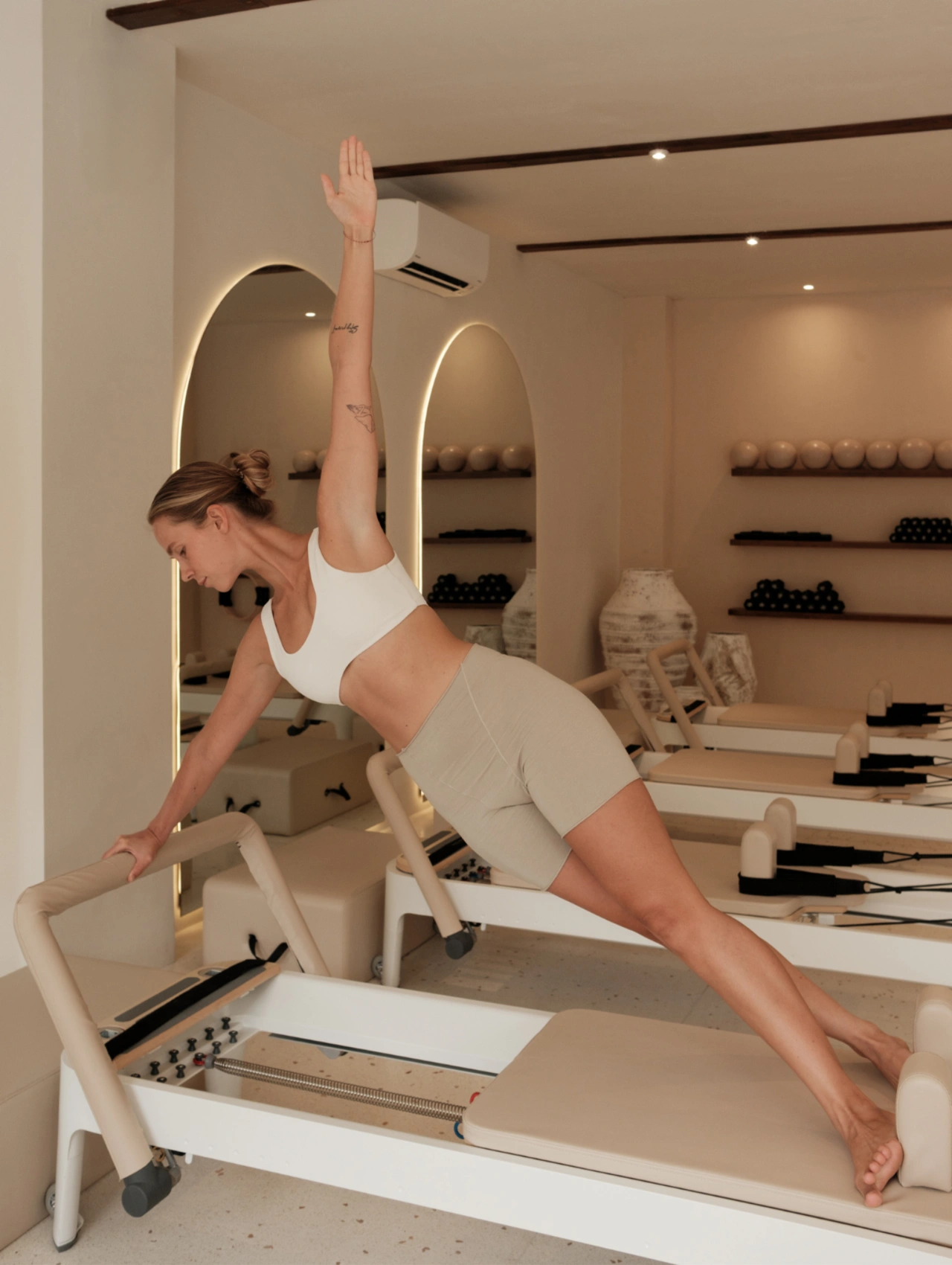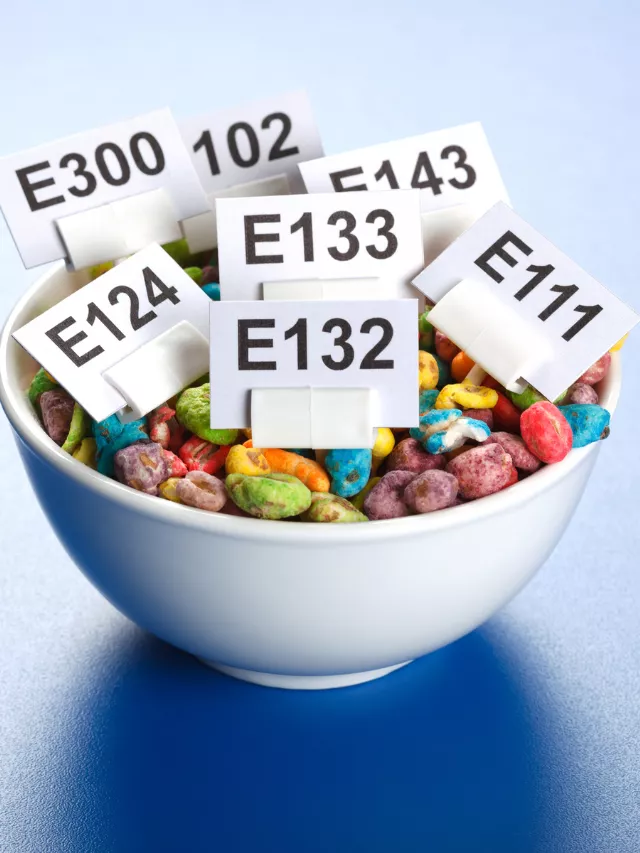Last Updated on March 28, 2025
How does your typical morning begin? Do you generally hit the snooze button on your alarm several times to get a few more minutes of sleep? Do you grab your phone each morning and check your email and social media accounts before you even get out of bed? Do you often feel stressed and anxious when you begin your day? That’s why you need to try the best healthy morning routine ideas!
Speaking personally, my mind was very active first thing in the morning. I used to wake up in the morning, check my email, and then read news alerts which were often negatively focused. Then I’d get up, and on alternating days I’d either hit a workout by 7 am or begin my workday.
These habits led me to feel stressed early in the day. After years of handling things this way, I finally realized that I needed to reset my morning routine. Now, when I wake up, I resist the urge to grab my phone. Instead, I begin my day with a short breath-focused meditation and feel gratitude for this new day. I then get out of bed and mindfully begin my morning rituals. My life has dramatically improved; I am more reflective, calm, and focused.
If you are like most people, you haven’t taken the time to analyze your morning routine. I’d encourage you to take a pause and do so. You may find that your morning habits are leading to unnecessary stress as you begin your day. Developing and maintaining an intentional morning routine will help to enhance your energy, positivity, and productivity! Over time, your morning habits can become a powerful source of personal growth.
Here are some of my best healthy morning routine ideas to start your day off the right way!
Meditate
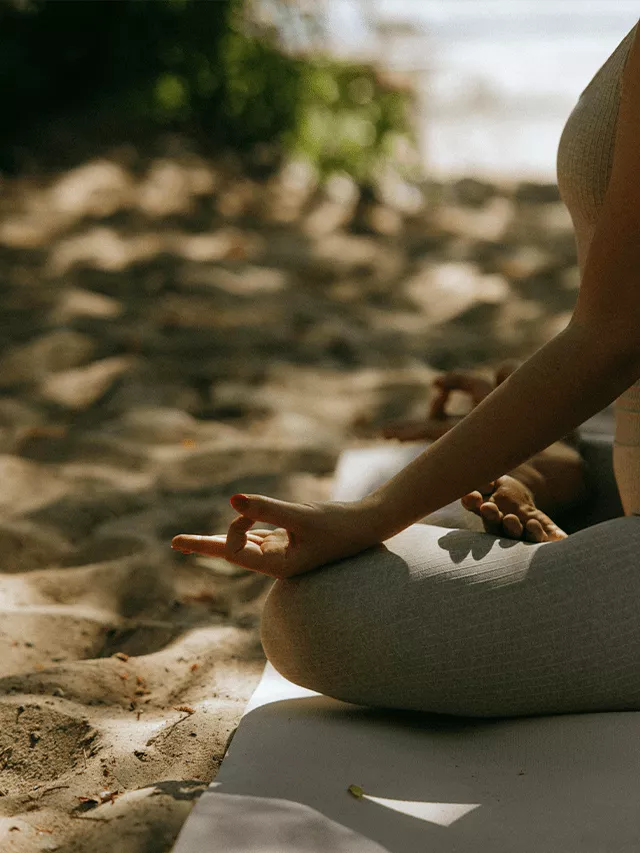
Meditation is a powerful tool for stress relief. Even a short meditation (five to 10 minutes) can distance you from what you are thinking and feeling and provide some mental and emotional freedom from stressors that may be troubling. I’ve found mindfulness meditation, which involves focusing on the present moment without judgment, to be a valuable addition to my morning routine.
Another useful approach is mantra meditation. A mantra is a syllable, word, or phrase that is repeated during meditation. During your meditation, try repeating a word (such as “calm” or “peace”). Whichever approach you choose, a short meditation is one of the best healthy morning routine ideas and a great practice that will help set you up for greater possibilities in your day.
Move

When I exercise early in the morning, as compared to the days that I don’t, I’ve noticed that my day is significantly better. Not only do I feel better, but my day is generally more positive and productive.
It’s important to move your body in the morning, as mobility is critical to both qualities of life and cognitive health. Exercise increases endorphins (the feel-good hormones) and helps you to start your day positively. Even after a short 20-minute workout, you will feel more energetic, and your mind will be ready to take on the activities of your day.
What type of exercise should you do? My recommendation is to plan a workout that you can look forward to and that you want to do – walk your dog, take a jog, jump rope, or dance if you like it – and you’re more likely to keep it up.
Practice Gratitude
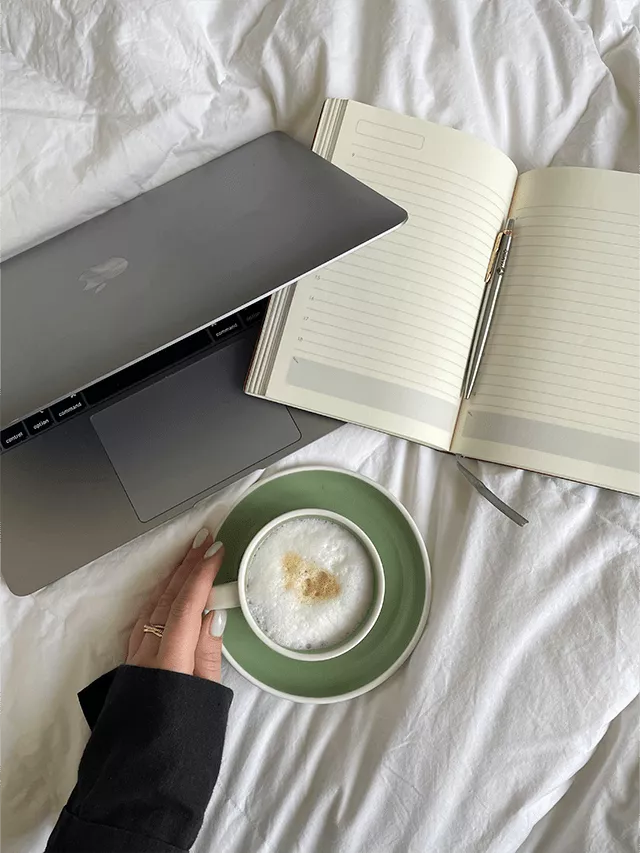
Another one of the best healthy morning routine ideas is practicing gratitude. Gratitude is a thankful appreciation for what a person receives, whether tangible or intangible. Cultivating feelings of gratitude early in the morning can help you to feel more at peace throughout your day. As you practice gratitude, you acknowledge the goodness in your life.
You connect to something larger than yourself, whether it be a higher power, spirit, nature, or something else that’s meaningful to you. Scientific studies have shown that the practice of gratitude leads to more positive emotions and that those who practice daily are more likely to be happy and successful. For example, here’s something I’ve found to help me guide my practice: keeping a gratitude journal on my nightstand and, when I awaken each morning, consistently writing down three things for which I am grateful.
Stay Unplugged from Technology

If the first thing you do when you wake up is grab your smartphone and check notifications and email, you are adding to your stress by cultivating a reactive mindset. You are starting your day on someone else’s terms rather than creating a plan of your own and considering the possibilities of your day.
Instead, detach from technology for the first hour of your day so you can begin your day from a place of peace and control. Start the day on your terms, not with yesterday’s news. You’ll feel much better.
Eat a Healthy Breakfast
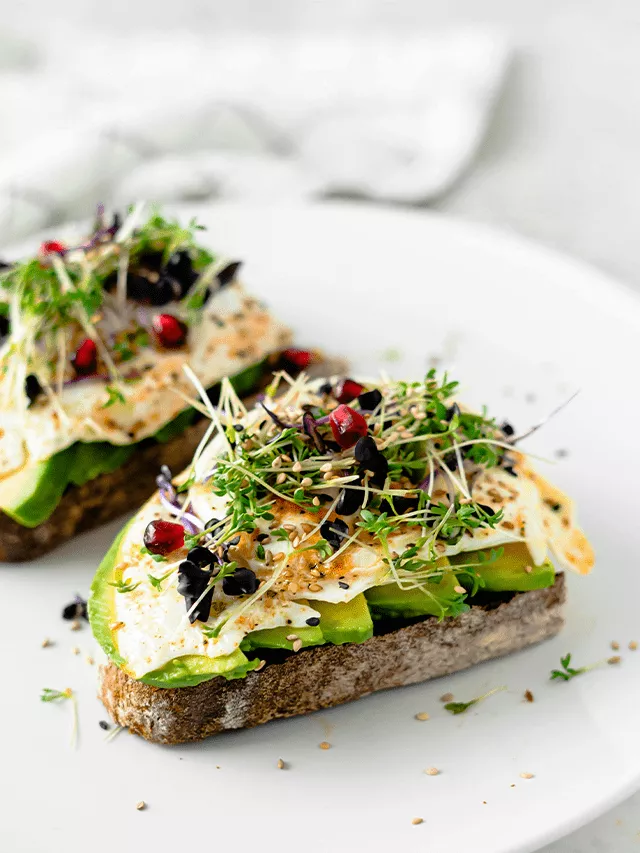
You’ve probably heard that breakfast is the most important meal of the day. As a physician and someone who regularly eats breakfast, I can attest to the truth of this statement. On the few occasions when I miss breakfast, I feel miserable. I get shaky and lightheaded and can’t think straight. These are typical symptoms of low blood sugar.
When you make time to eat a healthy breakfast (lean proteins, healthy fats, and whole grains), you’ll have more energy throughout the day and a stronger ability to focus and concentrate. Eating a nutritious, well-balanced breakfast each day helps you to control your weight and can also prevent you from eating too much during the rest of the day.
Good breakfast choices, depending on your food tolerances and preferences, include eggs, Greek yogurt, oatmeal, berries, chia seeds, flax seeds, avocados, nuts, and nut butter. A healthy breakfast has a low glycemic index, so avoid sugary breakfast foods, such as cereals, bars, bagels, and juices that set you up for an energy crash later in the day.
After you have eaten, it’s a great time to take your supplements. If you have medication for chronic conditions, then you should go ahead and do so. Some medications need to be taken on a full stomach. You should check with your doctor to see if specialized medication, especially things like medication for shingles, needs to be taken this way. Taking your supplements and medicines after eating is a great way to ensure you are covering all the bases and staying healthy.
Journal
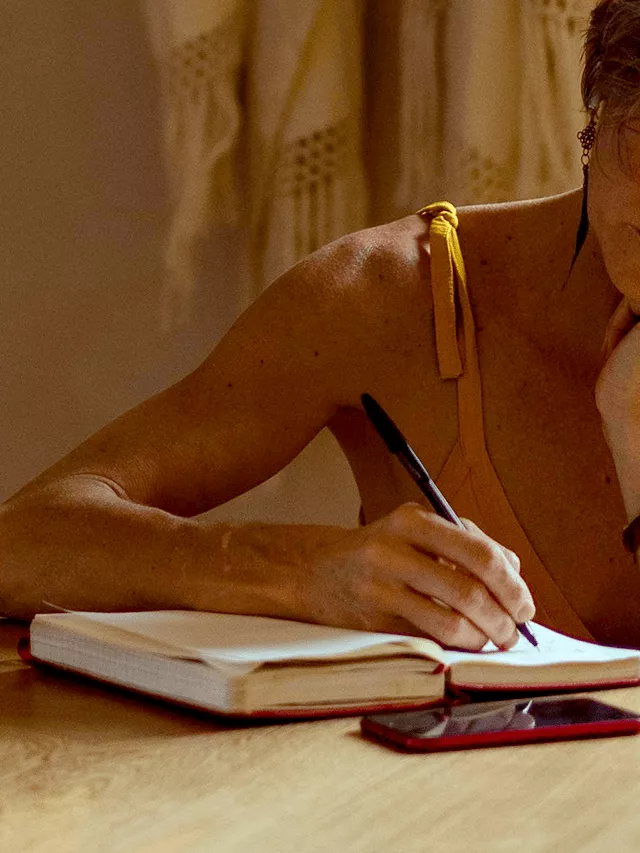
Journaling can be a powerful tool for your morning routine. We’ve discussed writing down three things for which you are grateful each morning. In addition, journaling is a method of aligning your daily actions with your higher goals and ambitions. If you want to set goals and achieve them, it’s important to keep them on top of your mind. In your journaling practice, you can visually remind yourself of your goals by writing them down and reviewing them each day.
Journaling can also help you to clear negative thoughts that tend to clutter your mind when writing them down. Ridding yourself of negative thoughts opens space for greater creativity and productivity during your day. Your morning journaling practice does not need to be lengthy: even five to 10 minutes of journaling per day can support you in meeting your goals thoughtfully and reflectively.
Conclusion
The bottom line: own your morning! Whatever you do first thing in the morning sets the tone for the remainder of your day. Start slowly. Determine what works best for you and then execute that plan every morning. Your morning routine will support you in living your life more happily and with greater intention. Let us know which one of these healthy morning routine ideas works out the best for you (or which one you’d like to try out first)!
What are your top 3 healthy habits?
Eating a nutritious diet. exercising on a regular basis. not a smoker. maintaining an appropriate weight.
What is a strong morning routine?
Take a quick stroll about your neighborhood, or visit a park or beach nearby to get some exercise, fresh air, and sun. To aid with reflection, analysis, and ideation, keep a journal or write morning pages, which entails filling three pages each morning with a stream of consciousness.
What are the six-morning habits of high?
Hal Erod identified six-morning routines that improve output and performance in the office. Silence, Affirm, Visualize, Exercise, Reading, and Scribing are the six SAVERS techniques.
True Self-Care Starts Inside: Why Gut Balance Matters More Than Skincare and Workouts
Benefits of Peptides: The Ultimate Guide to Buying High-Quality Supplements at Competitive Prices
Steal These 7 Wellness Trends to Crush Your 2026 Goals
What Research Shows on Food Dyes: Red Dye No. 3 Is Banned. Will the FDA Take Action on More Food Colorings?
- 6 Top Grounding Techniques for Calmness, Health, and Mindfulness
- How to Fix Your Sleep Schedule and Sleep Better at Night
- Desk Yoga: the Perfect Antidote to the Indoor Blues
Julie Rosenberg, MD is a global healthcare leader who is passionate about promoting good health and wellness worldwide. Julie believes that each of us is our own best healthcare provider. In an effort to find ways to support people in adopting a conscious lifestyle, Julie has devoted the last 16 years to the in-depth study and practice of yoga, meditation, and mindfulness. While trained in Western medicine, these Eastern principles and practices now inform her thinking, her leadership style, and her work. Recognizing that chronic stress and burnout are on the rise with the relentless pace of business today, Julie works with senior leaders and teams to help them achieve their highest state of well-being and become more effective in their organizations. She is the author of two best-selling books: "Beyond the Mat: Achieve Focus, Presence, and Enlightened Leadership Through the Principles and Practice of Yoga" and "Be True: A Personal Guide to Becoming Your Most Authentic Self."
- Julie Rosenberg
- Julie Rosenberg




